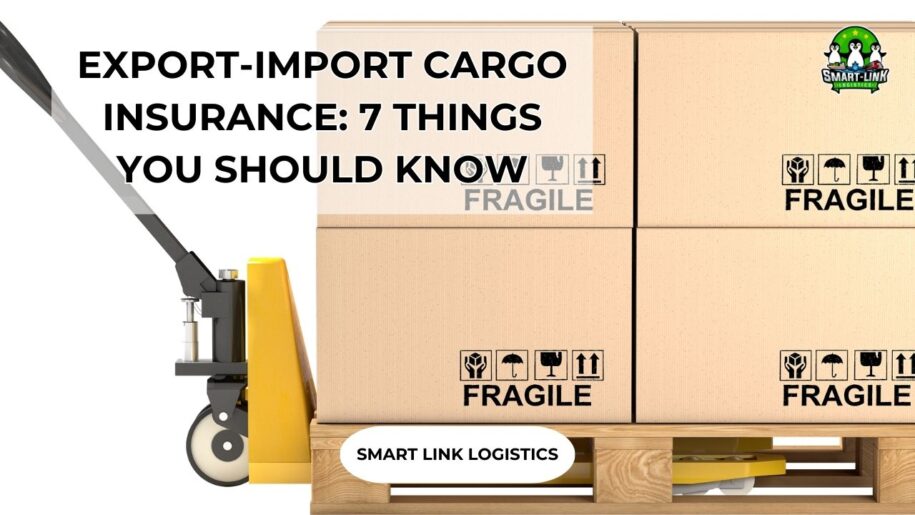
EXPORT-IMPORT CARGO INSURANCE: 7 THINGS YOU SHOULD KNOW
Essential Knowledge About Export Import Cargo Insurance
Export import cargo insurance has become a crucial tool in the context of an increasingly integrated global economy. This is because cross-border cargo transportation always involves numerous unforeseen risks.
Understanding export-import cargo insurance can help businesses protect their interests from potential losses, enhance their competitive edge, and confidently expand their international operations.
What is Export Import Cargo Insurance?
Export-import cargo insurance is an agreement between the cargo owner and the insurance company, in which the insurer agrees to compensate for damages to goods incurred during cross-border transportation.
The participants in this type of insurance are quite diverse, encompassing most types of goods transported by road, rail, air, and sea, both domestically within Vietnam and globally.
Coverage Scope of Export-Import Cargo Insurance
The scope of coverage in international cargo insurance clearly defines the responsibilities of the insurer and the extent of risks for which the insurance company will be liable to compensate.
Each insurance contract comes with specific terms and conditions. The insurer is obligated to pay compensation only when the loss falls within the defined coverage scope. The broader the coverage, the more risks are covered, leading to higher insurance costs.
Risks covered are often not directly listed in the contract but are stipulated indirectly through reference to standard industry clauses. A prime example is the set of clauses from the Institute of London Underwriters, which includes three main levels of coverage:
- Institute Cargo Clauses A: The most comprehensive coverage, including most risks except for certain special cases like war or strikes.
- Institute Cargo Clauses B: A narrower scope of coverage compared to Clauses A.
- Institute Cargo Clauses C: The most basic level of coverage, covering only major risks.
In practical business, most export-import companies often choose Institute Cargo Clauses A to ensure the highest level of protection for their goods. However, the choice of insurance coverage depends on many factors, such as the value of the goods, the transport route, partner requirements, and the financial capacity of the business.

Why Businesses Need Export-Import Cargo Insurance
- Comprehensive Risk Coverage:
- Marine cargo insurance applies ICC (A), (B), and (C) clauses, which are widely accepted globally.
- Protection against various risks such as fire, lightning, grounding, and ship sinking.
- Can be extended to include maritime, external, and strike risks.
- Legal Compliance:
- Meets the conditions of Letters of Credit, necessary for bank payments.
- Complies with import regulations in certain countries.
- Facilitates quick release of goods in the event of general average loss.
- Minimize Financial Risks:
- Protects against loss or damage during multimodal transportation.
- Covers damages during cargo loading and unloading.
- Can include additional coverage for war, strikes, and theft.
Export-import cargo insurance provides peace of mind for businesses, ensuring compliance with international regulations and minimizing financial risks in global trade operations.
Steps to Purchase Export-Import Cargo Insurance
Process for Purchasing Export-Import Cargo Insurance for Businesses
- Complete the Insurance Application:
- The business contacts the insurance company to express their need for insurance. The insurance company then provides an insurance application form.
- The business fills out the form, including:
- Details of the insured entity
- Description of the goods to be insured
- Desired type of insurance
- Any necessary supplementary documents
- Note: Sections for agents or brokers (if any) will be completed by them.
- Submit the Insurance Application:
- The business faxes the completed application to the insurance company.
- Review and Response:
- The insurance company reviews the application.
- If approved, they will draft and send the insurance contract to the business.
- Confirm and Pay Insurance Premium:
- The business carefully checks the terms of the contract.
- If agreed, the business signs and returns the contract to the insurance company.
- The insurance company issues an invoice for the insurance premium.
- The business makes the payment according to the instructions.
Classification of Export-Import Cargo Insurance Packages
Insurance companies offer a variety of service packages tailored to specific modes of transportation. Here are four main types of insurance based on the transport method:
- Marine Transportation Insurance:
- Applies to goods transported by sea, including both containerized and bulk cargo.
- Road Transportation Insurance:
- Designed for goods transported by truck or other road vehicles, typically used for domestic transportation or between countries sharing a land border.
- Air Transportation Insurance:
- Protects goods during air transportation, suitable for shipments requiring quick delivery or high-value goods.
- Rail Transportation Insurance:
- Applies to goods transported by train, often used for long-distance routes or large-volume cargo.
Each type of insurance has distinct features that reflect the specific risks associated with each mode of transportation.
We hope this article helps you better understand cargo insurance. At Smart Link, we specialize in import consulting and handling shipments in various markets with successful consignments. Here, we will provide you with services and solutions to help your goods reach global markets with a commitment to dedication and partnership with customers. We take pride in being a company with over 13 years of experience in the logistics field.
Hotline: + 84 935 766 039 to know more about our services

If you require assistance with international import and export of goods, please contact our team at Smartlink Logistics. We are available to provide you with professional guidance on our services and the necessary customs procedures.
SMART LINK: BEST SERVICE BEST YOU


































